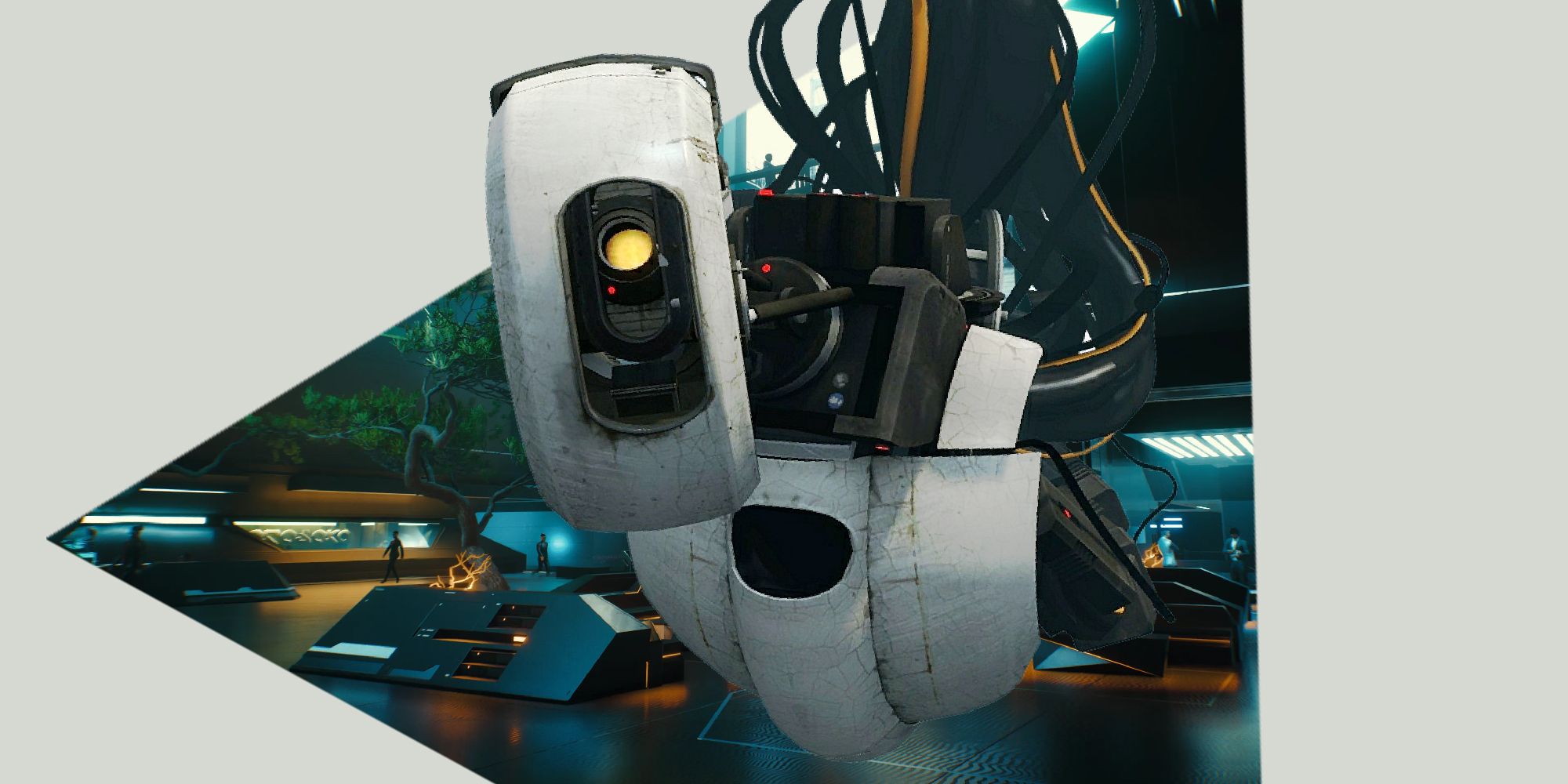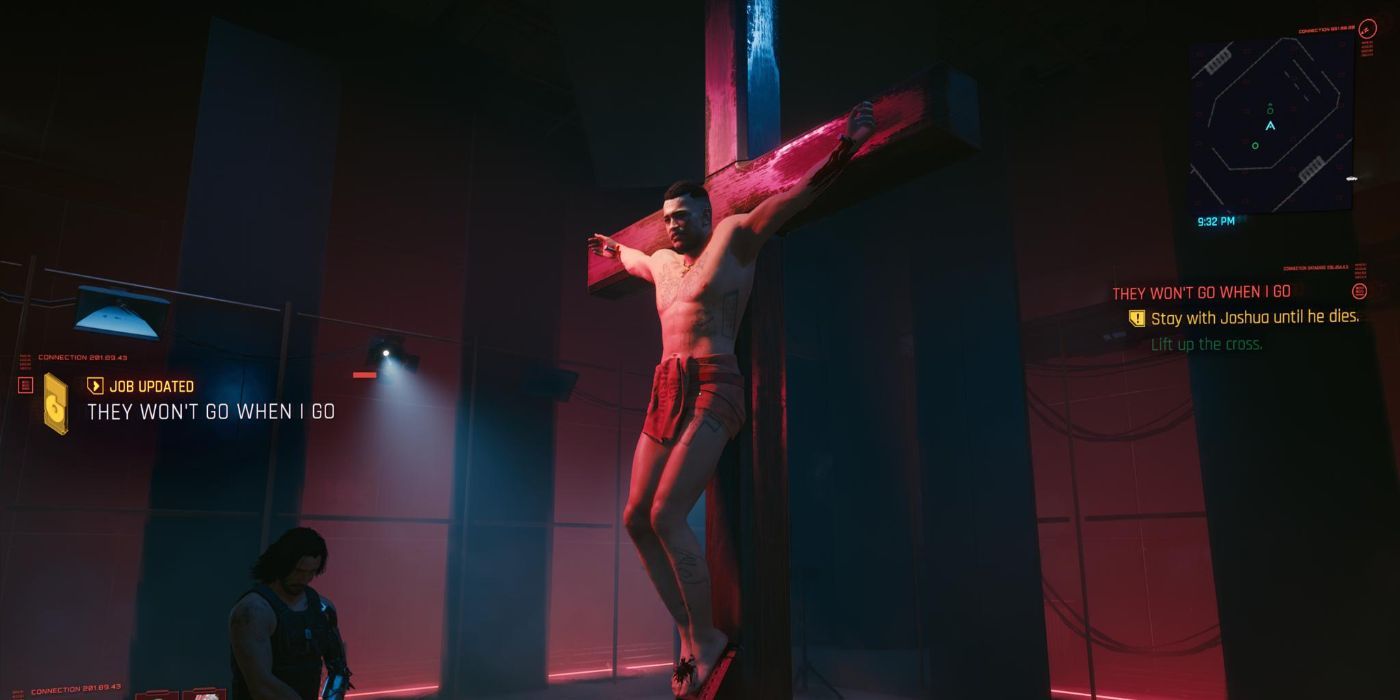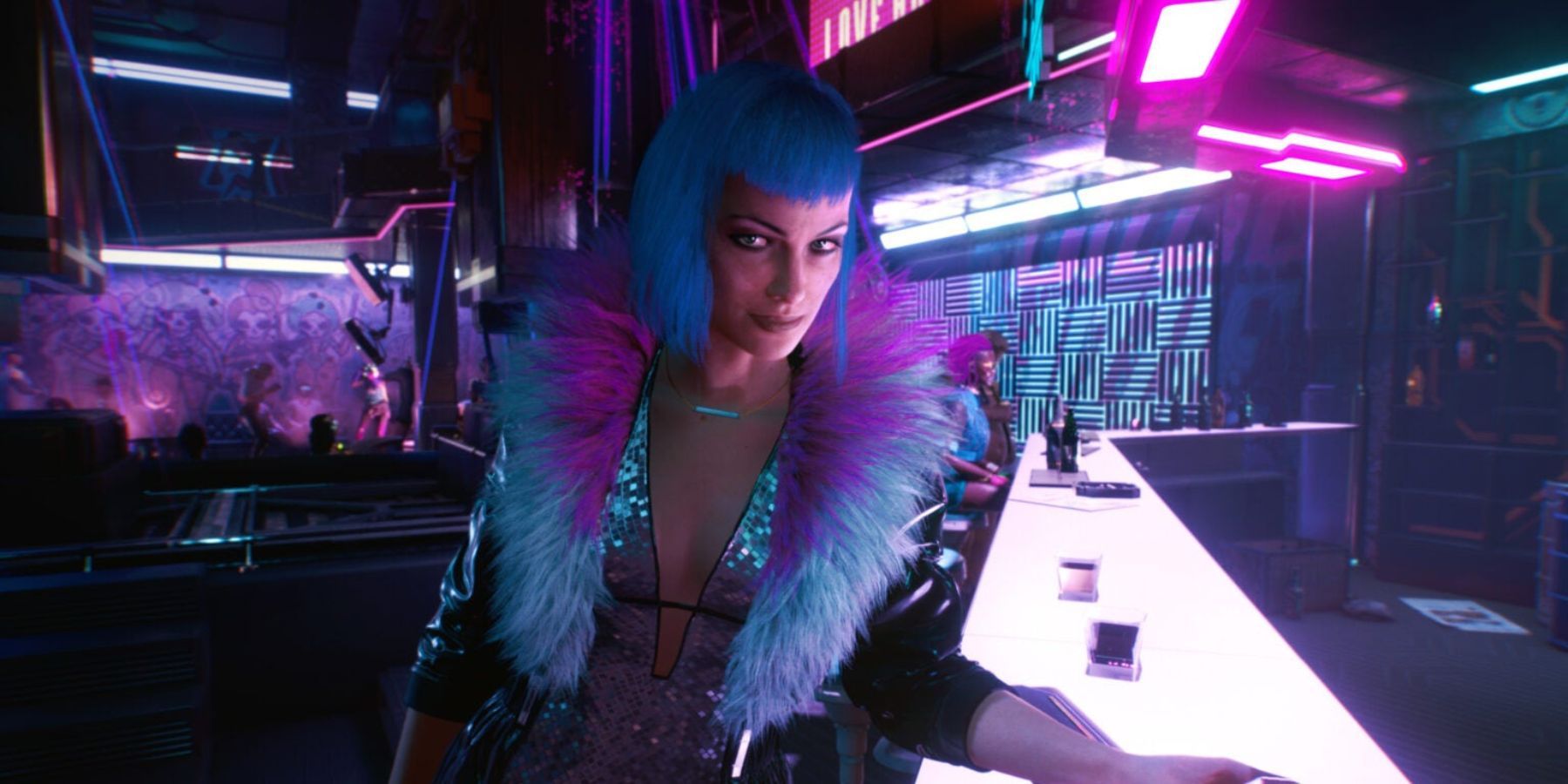Cyberpunk 2077 still inspires mixed feelings within me. I’ve been enjoying my recent playthrough on PS5 significantly more than I did on PC back in 2020. Though my initial time with the game wasn't too buggy, I did hit a hard crash or two and it tended to run hot and slow on my gaming laptop. Now, years later, the bugs have been squashed, the game runs smoothly, and I can relax on my couch while making my way through Night City at a leisurely pace.
Even now that the bugs are fixed, Cyberpunk 2077 still shows signs of the rush CD Projekt Red was in to get it out the door before it was ready. I've written before about the ways the game doesn't do much to reward exploration and how you'll run into locked doors far more often than an exciting discovery if you venture into back alleys. But, more than the lack of interiors, Cyberpunk 2077 reveals its rushed production in the thinness of its writing.
To explain what I mean, I think it's helpful to look at a moment when Cyberpunk 2077 is, narratively, firing on all cylinders. Colloquially known as "Sinnerman," the quest line featuring Joshua Stephenson begins with that quest, moves into a second act called "There Is A Light That Never Goes Out," and concludes with "They Won't Go When I Go." It kicks off with a call from Wakako Okada, a fixer who runs a pachinko parlor in Japantown, asking you to rub out Stephenson, a convicted murderer who is out of prison on leave. If you agree to the quest, you meet with Bill Jablonsky, the husband of one of your target's victims. Jablonsky wants to watch as you kill him, and has you tail Stephenson's police escort until it gets hung up in traffic. You and Jablonsky get out, but an NCPD officer quickly shoots him dead. Stephenson asks you to join him for the rest of the day in exchange for the same amount Wakako was offering.
Do this and it will be revealed that Stephenson found Jesus in prison. A braindance studio, preying on his religious awakening, offers to produce a BD in which Stephenson is crucified. Given that he's up for the electric chair anyway, Stephenson agrees, thinking that dying in the same way that Christ did, and experiencing the same cocktail of dread, faith, and doubt in the face of execution — which anyone who watches the braindance will feel — will help save millions of souls. If you stick with this questline until the end, you have the option to be with Stephenson as he dies, either witnessing his suffering or driving the nails into his hands and feet yourself.
It's a smart quest, with layers upon layers of meaning for analytical players to excavate. When Rachel, Stephenson's corporate handler, fears that your questions are too probing and may cause her martyr-in-waiting to doubt, she offers you a payout to walk away from him, inspiring many players to see a connection between V and Judas Iscariot, who sold Jesus out for 30 silver coins. Stephenson's instant connection to V also seems reminiscent of the way Christ called his disciples, simply asking them to drop everything and follow him. There's plenty to untangle here in Stephenson's motivations, too. Is he being selfish, altruistic, or both? Can any act that we choose for ourselves be completely devoid of self-interest, given that our choosing to do it means that, on some level, we want to do it?
"Sinnerman" is the rare quest in Cyberpunk 2077 that feels fully cooked. When I think of the hard work that goes into developing an idea beyond the superficial, I often think of the "How To Appreciate Wine" episode of How to with John Wilson. The series blends candid footage of real people doing humorous things on the streets of New York with voice over from Wilson, a comedian and filmmaker, in which he weaves a narrative designed to "teach" viewers a certain skill. I put "teach" in quotes because you won't actually learn any skills from How to. Instead, you get to watch a very funny person tie a narrative together through extremely tenuous connections. For example, in the "How To Appreciate Wine" episode, Wilson draws the link that because people like older wines, he should talk to somebody who appreciates old things. This leads to the host heading to the apartment of a dude who collects old MREs. There Wilson and the man — to my visceral disgust — chow down on a Vietnam-era ration.
It's a funny scene, but it's also deeply thoughtful. No writer would immediately draw a connection between wine and decades-old military rations. It feels like the result of a creator not going with their first, most obvious instinct and, instead, digging deeper until they found something completely original. Getting to that place takes effort and it also takes time. Like "How To Appreciate Wine," "Sinnerman" feels like the result of a writer (or writers) thinking long and hard about the implications of the world they're helping to create. Its portrait of the overlap between corporate greed and religious zealotry feels deeply considered, as does its understanding of how braindance technology would fit into that dynamic.
"Sinnerman"'s strengths highlight the weaknesses of many of Cyberpunk 2077's other quests. I also recently replayed "Epistrophy" the quest in which Delamain, Night City's AI-driven Uber-equivalent, tasks V with hunting down rogue self-driving cars scattered throughout the city's disparate districts. This is a fun concept and smartly gets the player to explore areas of Night City they might otherwise ignore. But, for as good as the concept is, its execution feels half-baked, at best. Though some of these errands are interesting — a suicidal car memorably tells you "Shrinks hate vehicles. We don't have mothers." — but a few stand out for how slapdash they feel. In one, the car is voiced by GLaDOS actor Ellen McLain, who is just doing her voice from Portal and reading lines that sound like they're from Portal. There's even a cake reference. Another car hates plastic flamingos for some reason, and wants you to kill them all. This errand is just an excuse to shoehorn The Silence of the Lamb references into the game, with the car referring to you as Clarice and V quipping, "Have the flamingos stopped screaming?" In another quest, "Big In Japan," a man that V rescues recites lines from The Office.
These moments feel less like CDPR making a tonal choice and more like the studio desperately needing to generate as much content as quickly as possible. Cyberpunk 2077 is a huge game with tons of quests, side jobs, gigs, shards, and more. It needed a lot of written words. As a result, it feels like the writers reached for references as a way of winking at their players and, more importantly, filling a bucket. As CDPR works on the game's first expansion, I hope that CP2077's writers have the time they need to do their jobs at a higher level. "Sinnerman" is the result when they have the time and resources to do so. Stale Office quotes are the result when they don't.



